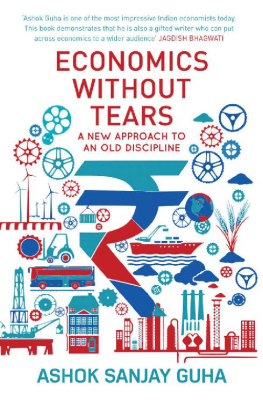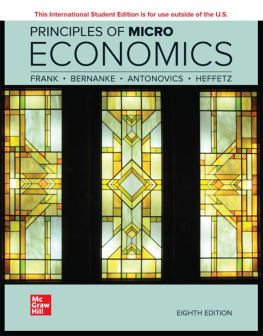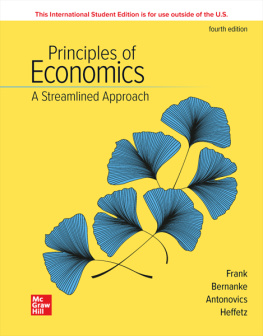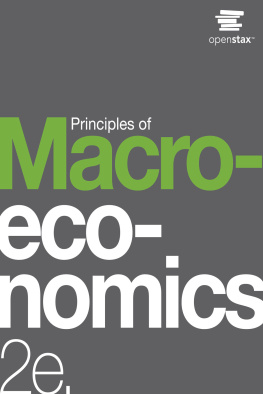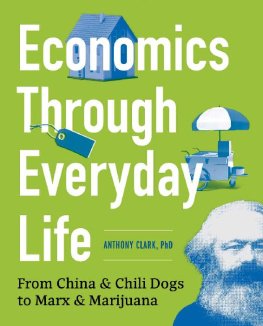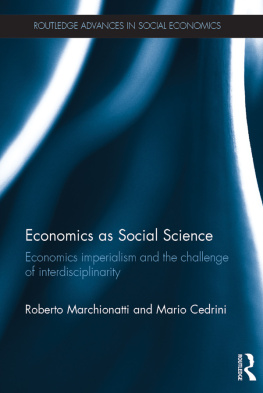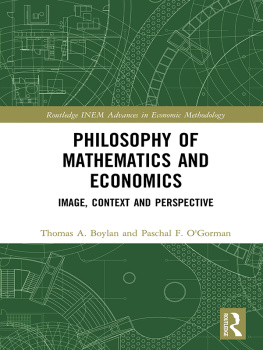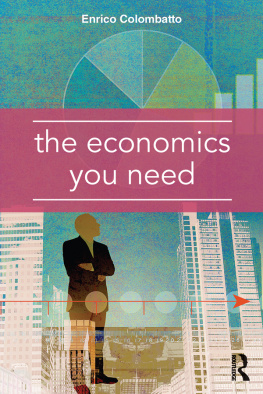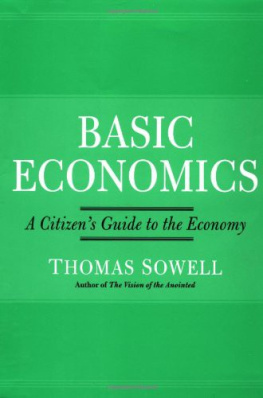In this concise book on economic theory for beginners, Ashok Guha focuses on some of the most important ideas in economics, which, because of their complexity, are usually treated in more advanced books, and brings out their core content with simple examples, telling anecdotes and easy-to-grasp analytical reasoningall with a kind of lucidity that is exemplary. The topics chosen will grab the attention of all those who are curious about the discipline of economics but do not yet have a technical background. I wish a large readership for this short bookPranab Bardhan, Professor of the Graduate School, Department of Economics, University of California, Berkeley
Ashok Guha is one of the most impressive Indian economists today. His book, Economics without Tears, demonstrates that he is also a gifted writer who can put across economics to a wider audience. This is a book that deserves to be read by the multitude who have become sceptical of the relevance of economics to policymaking to benefit mankindJagdish Bhagwati, University Professor, Economics, Law and International Affairs, Columbia University
Preface
Forty years ago, I was assigned the task of introducing economics to the students pursuing their masters in international relations at JNU. These students were some of the best and the brightest in the university, as their subsequent contributions towards the growth of the nation were to prove. However, they were primarily students of history, political science and sociology, with a sparse sprinkling of those pursuing literature and science. Hardly any had prior acquaintance with economics; and to a man (or woman), they were terrified of mathematics.
As someone trained in mainstream economics, with its mathematical rigour and uncompromising logical structure, I was thus confronted with two problems. First, how could I create and sustain in my students an enthusiasm for the subject I was supposed to teach? Could I somehow link it up with their primary interests, which were definitely not those of textbook economics? Second, how could I clarify the basic concepts of a discipline that had become increasingly mathematical without enmeshing them in mathematical methods and jargon that was sure to induce a state of uncomprehending somnolent boredom if not intellectual paralysis in my students?
This book provides an attempted solution, devised after many decades of interaction with students, to these twin problems.
In the process of working out my ideas, I made two important discoveries. First, while mathematics is a wonderful tool for explaining things to anyone whose mind works better with numbers and symbols than with words, it is by no means as indispensable to an understanding of economics as it is generally made out to be. Given an apt choice of words, the basic concepts of the discipline can be explained to the intelligent reader without any math whatsoever. This includes some, though not all, of the most advanced and contemporary ideas as well. Mathematics contributes chiefly in the generalization of results from two to many dimensions, but relatively few economic insights are gained in the process. Otherwise math adds more to esoteric quality than to intellectual clarity.
Second, economics is fun. It has serious implications, no doubt. But like all voyages of intellectual discovery, the process of learning economics is driven by a sense of wonder and amusement at the surprises, paradoxes and puzzles that confront us at every turn of the road and by the unsuspected answers that the journey provides to the questions that haunt us. If I succeed in communicating some of this to my readers, I will consider the writing of this book an enterprise that has been well worth its while.
PART I
Chapter 1
The Fundamental Problem of Economics
What is economics? Lionel Robbins, of the London School of Economics, famously defined the discipline as the study of the optimal use of scarce resources to satisfy unlimited wants. The conventional textbook presents Robinson Crusoe on his lonely island, puzzling about how to use his limited resources and time to best satisfy his requirements, as the prototype of the applied economist. Robbinss definition and the Robinson Crusoe model are, in my opinion, misleading: they miss the essence of economicsthe fact that it is a social science. They are more about the mathematics of maximization than about what goes on in any actual economy.
Economics as a field of inquiry began with a very different question: a question that might be called the fundamental problem of economics.
As we all know, an economy is a system that involves millions of peopleworkers, producers, consumers, managers, financiers, brokers, students, teachersall working to achieve their own separate goals in thousands of different environmentsat home, in mills, in factories, in mines, on farms, in offices, in schools. It is a system of truly bewildering size and complexity. Consider what is involved when a certain Julie in Delhi buys a bar of chocolate. Her chocolate contains cocoa that comes from beans grown on a farm in Ghana and processed in Accra. It contains sugar produced from cane grown in Mauritius and milk drawn from cows in a dairy in Holland. The chocolate is made and packed in a Belgian factory and shipped out to Mumbai on a Greek ship, registered in Panama and manned by an Indian crew. In Mumbai, a Marathi dock worker transfers it to a truck driven by a Sikh all the way to the warehouse of a Marwari wholesaler in Sadar Bazar in Delhi. From there, a Haryanvi salesman carries it to a retailer, and it reaches the final consumer, Julie. Thousands of different people the world over have interacted in bringing Julie her bar of chocolate. And none of them know what she or anyone else in this network is doing, or even who they are.

